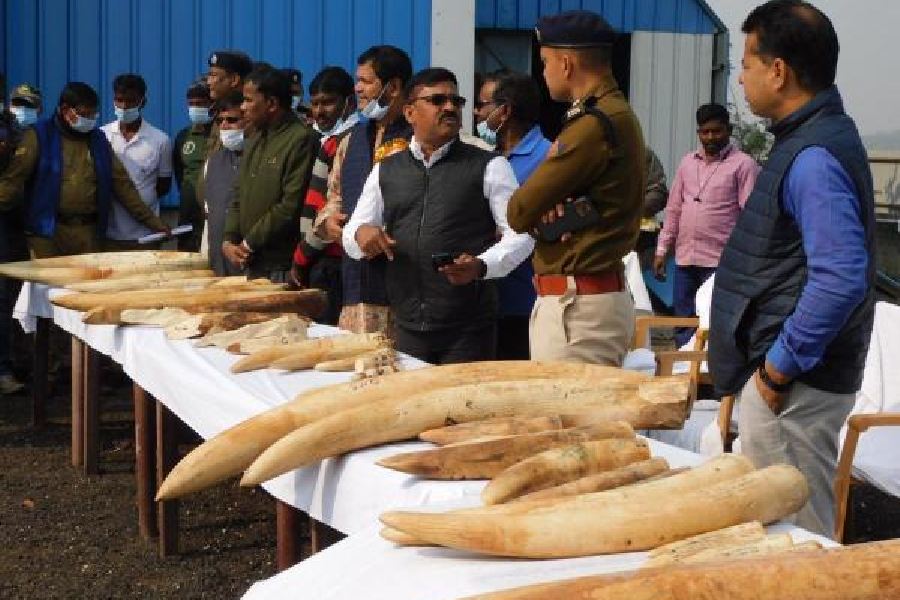The Bengal forest department on Tuesday started burning 53 pieces of ivory, weighing around 270kg, as part of its recent decision to destroy such “white gold” kept in its possession for years.
A senior forester in Calcutta said the move was taken after the Centre had asked the state forest department to dispose of “animal articles” with special guidelines for destruction in a bid to send a strong message against poaching of elephants.
“We have quintals of ivory stockpiled in the custody of various forest offices in north and south Bengal as such animal articles were not destroyed at least in the past 15 years. We have started the process from Bankura and other divisions having stocks of ivory will do the same,” said the senior forest officer in Calcutta.
Chief wildlife warden of Bengal Debal Ray said he had already formed a committee for each circle with ivory stocks to initiate the process of disposing of those articles.
“The incineration of tusks started in Bankura today. We have already formed committees for other circles (according to the guidelines) to do the same,” said Ray.
As the incineration of ivory takes a long time, the foresters chose to use an incinerator machine from a private factory in Bankura’s Barjora to speed up the process.
“It is a tough job to completely destroy ivory by burning. Sometimes it can take over 50 hours and that is why we are using the incinerator machine of a private factory that deals with bio-medical waste and chemicals,” said a senior forester, who is part of the destruction process.
The process started around 12.30pm on Tuesday and continued till late evening. “It is around 7.30pm now and 30 per cent of the ivory is yet to be destroyed. In case it takes so long, we will pulverise the ivory pieces and burn them,” he said.
The 53 pieces of ivory being incinerated in Bankura were in the custody of three forest divisions in Bankura. A special committee was formed to decide on the process to destroy the tusks. The committee met in the presence of senior foresters, including three divisional forest officers (DFOs) and chief conservator of forest (central circle) S. Kulandaivel.
A forester said most of the 53 ivory tusks being burnt on Tuesday had been extricated from the carcasses of the elephants from different areas. The largest tusk burnt on Tuesday weighed around 28kg.
“Our division had 35 tusks in stock for years,” said Umar Imam, the Bankura north DFO.
Ivory is known for its high value on the black market and the foresters often bust rackets involved in the illegal trade of the elephant tusk, which is commonly known as “white gold’. A source said a kilogram of ivory sold at Rs 6-8 lakh on the international market.
A forester said once the incineration of the ivory was over, the ashes would be collected to ensure that no one could use the leftovers. “We have a plan to mix the ashes with cement and produce artefacts,” said a forester.










